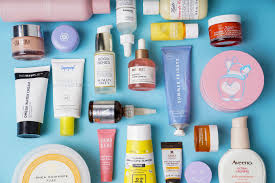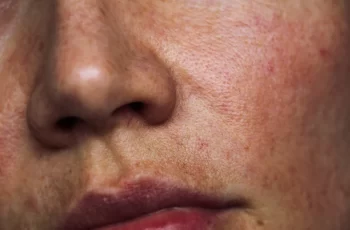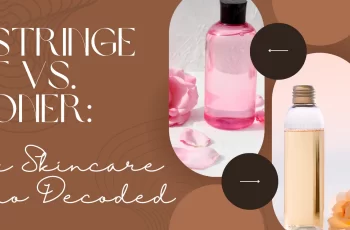
Is Skincare Dangerous for Children? | Safe Skincare for Kids
Is skincare bad for kids? The British Association for Dermatologists has put out a warning that children who start skincare too young may be at risk for developing skin problems. They stated that skincare can be dangerous for children. Children as young as 8 years old are beginning to use skin care products that they see on social media and are following trends on Tik Tok. How dangerous are these skincare products for children? Why are dermatologists concerned?
I am a Dermatologist in Miami Florida. Many of my patients are parents that want skincare advice for children. In this blog I will share with you the advice that I give to my patients who have kids who want to use skincare. Is it really dangerous? The bottom line is- the risks of tweens using skincare- in my opinion- is really no different than the risk to adults- except the issue of absorption of toxic chemicals and exposure to allergens. Let’s look at the issues.
Skincare for Children
Children have been lured in by campaigns that target them such as the Drunk Elephant campaigns. There is not anything inherently wrong with children 13 and under using skincare. The issue is that they choose the wrong products which means that they do not use the important products they should, and the products they are using can cause harm.
Which Skincare Products Should Children Avoid?
There are 6 main issues we need to worry about when thinking about the safety of skincare for kids:
Allergy
Chemical absorption into the body
Inflammation
Over exfoliation
Sun sensitivity
Toxic ingredients
Allergic reactions
Female adolescents have a higher rate of contact dermatitis on the face, due to increased exposure to preservatives, fragrances and other allergens in cosmetics. (4) Now that more male tweens are using skincare, it is likely that we will see a rise in this group too. Basically, the more possible allergens you are exposed to- the more likely you are to have an allergic reaction. Many pediatric dermatologists suggest a pre-emptive avoidance strategy’ (P.E.A.S.) of the top 10 allergens.
However, there is no proof that I can find that normal healthy teens are any more likely to develop an allergic reaction (also known as Type IV hypersensitivity) than any other groups. The study I did find (7) showed that kids with eczema (also known as atopic dermatitis or AD) are more likely to have contact allergies compared to kids who don’t have eczema. This might happen because eczema can make the skin’s outer layer weaker. When the skin’s barrier isn’t strong, things from the outside can get in easier. Eczema can make it easier for allergens to enter the skin and cause allergies. The youngest kids with eczema, those between 1 to 5 years old, are especially more likely to develop allergic reactions to skincare, showing that their skin might be extra sensitive during these early years.
The bottom line is- if your child does not have eczema and they are over 5 years old, they are not at a higher risk of skin allergies than adults. A PEAS should be used in kids that have eczema- especially age 5 and younger, and if they had eczema as a child, are hypersensitive, or have severely dry skin.
You can find a list of common allergens in skincare products at this link.
These are the most common allergens in kids associated with skin care products or facial beauty devices such as jade rollers, gua sha stones:
Nickle
Fragrances
Preservatives
Cocamidopropyl Betaine
Formaldehyde
Propylene glycol
Essential Oils
Chemical sunscreens
Note that organic and natural products are not necessarily safer for kids in terms of allergic reactions because these plant-derived products often contain many allergens. One example is chamomile.
The best choice of skincare for kids with eczema of highly allergic are products that are:
paraben free
sulfate free
phthalate free
fragrance free
Bright Girl is a dermatologist-developed skincare line free of parabens, sulfates, phthalates and allergens. This skincare line was designed specifically for teens and tweens.
Increased Absorption
Children have a higher ratio of surface area to body mass compared to adults, meaning they have a larger skin surface area relative to their overall body size. This characteristic makes them more susceptible to absorbing chemicals through their skin and into their bloodstream. The smaller the child, the greater the potential for absorption relative to their body size. This is a critical consideration for the application of products on children’s skin, particularly when it comes to chemicals and toxic ingredients. For example, the ingredients in chemical sunscreens can be absorbed more readily by the delicate and more permeable skin of babies and toddlers, posing potential risks. Therefore, it’s generally recommended to avoid the use of chemical sunscreens in very young children and opt for safer alternatives, such as physical (mineral) sunscreens that sit on top of the skin and reflect UV rays, providing protection without the same level of absorption into the skin.
Some ingredients can also increase absorption such as hyaluronic acid.
Using a face product will result in less absorption than when it is used on the body, so absorption is less of an issue with face products and rinse off products like a body wash.
The bottom line is- always read the label of any skincare product you apply to a large area of skin on your children, and avoid dangerous ingredients in body products. The smaller your child is – the more cautious you need to be.
Exfoliation
Exfoliation removes part of the top layer of skin making it slightly thinner and possibly more susceptible to sun damage. Although we really do not know how much, it has been postulated that it lowers your skin’s natural sun protection by an SPF of 3. Not all exfoliants have been studied but we do know that some studies have shown that glycolic acid can increase the risk of sunburn. (9,10) For this reason the CIR suggested that anyone using an alpha hydroxyacid should use a daily SPF to protect the skin from sun damage. (11)
My advice to my patients is this: “Always use a SPF every day. If you exfoliate- be even more diligent about everyday SPF use!”
Children who exfoliate are not at a greater risk than adults, but they are less likely to be consistent with SPF usage. If your teen uses an exfoliant – make sure they wear a daily sunscreen as well!
Note that retinol is an exfoliant. It is only safe for teens and tweens to use retinol if they are using a daily SPF.
Skin Sensitivity
Children are at an increased risk of developing sensitive skin and inflammation if they use products that are not right for their skin type. The same is true of adults. Kids are not at an increased risk of developing inflammation as compared to adults. All ages need to match their skincare routine to their skin concerns.
The skin type quiz that I developed has been validated in ages 13+ to help kids find the best skincare for their skin type.
Kid’s Skincare Products
The best way to find good skincare for kids is to see your dermatologist. If you do not have one – the next best thing is a skincare line developed by dermatologists for kids. Check out the video below for details on dermatology for children and teens!
Dermatologist Dr. Angela Casey talks about safe skincare for kids and the skincare products she developed for specifically for girls.
Most Important Skincare for Children
There are 3 main aspects of skincare that children should focus on:
Cleansing
Moisturizing
Sun Protection
Cleansers remove different kinds of debris and oils accumulated throughout the day, keeping your kids’ skin less prone to acne or infections. It is important to not use a cleanser that is too harsh, as that can cause irritation and redness on sensitive skin.
Moisturizers help keep the skin barrier healthy, preventing flaky or chapped skin. Chapped skin can be painful, especially on or around the lips for children.
Sun protective products are crucial for preventing long term sun damage that can one day result in the accelerated development of wrinkles. SPF is also simply important for preventing sunburns, which are both uncomfortable for children, and less than optimal for their long term health.
Sunscreen for Children
The most important skincare product for children is a daily sunscreen. I recommend a mineral sunscreen so that children are not exposed to unnecessary chemicals. Getting every child to wear SPF on their face every day would dramatically lower the incidence of facial aging and skin cancer on the face.
Cleansers for Children
The second most important product for children to use on their face is a cleanser that matches their skin type. Oily skin needs a foaming cleanser while dry types need a creamy or nonfoaming cleanser. Most kids under 11 have drier skin on the face until their hormones change in puberty. These are cleansers that work for most children.
Moisturizers for Children
Kids can get dry skin just like adults can, so having an appropriate moisturizer can be important. For example, my nephew used to get awful chapped lips when his parents brought the family to Wyoming, a much drier place than their home in Miami. If my nephew had access to a gentle lip balm or moisturizer, he would have been less uncomfortable.
It is also important to make sure your kids are using a safe moisturizer with clean ingredients that won’t affect their hormones or damage sensitive skin.
This moisturizer from bright girl is specifically designed for the needs of pre-adolescent skin, formulated to provide clean moisturization to young faces.
Conclusion
The right skin care products can make a big difference in your child’s skin health. Keeping kids safe from clogged pores, sunburns, chapped skin, and irritation is as important to us as it is to you; that’s why we believe incorporating a cleanser, moisturizer, and SPF product in your child’s skin care is critical.
If you’re looking for advice for your own skin and specific concerns, be sure to take the Baumann Skin Type Quiz for free today by clicking the button below!


